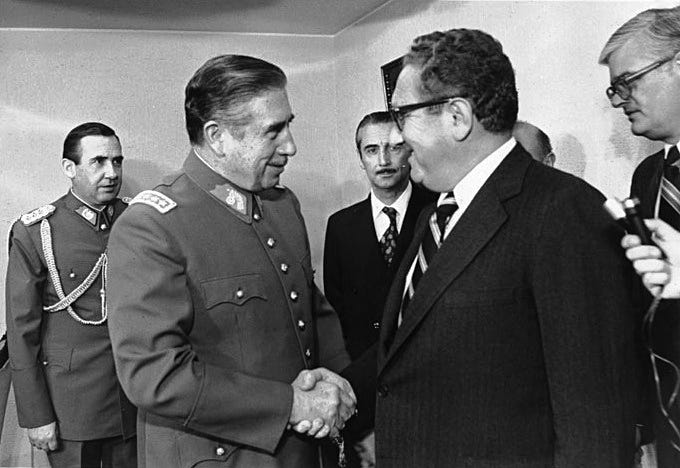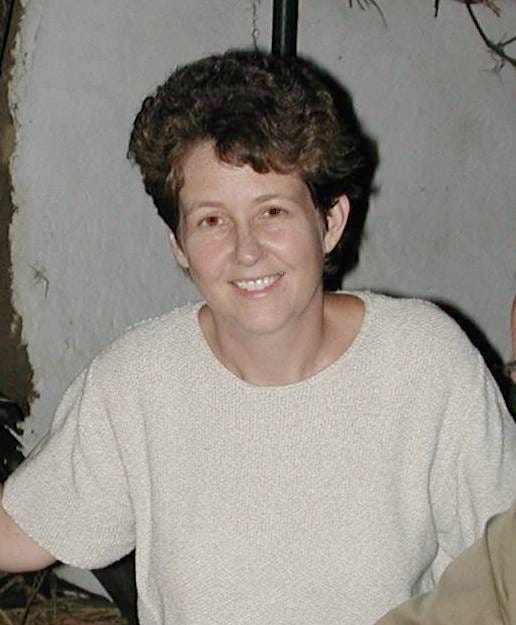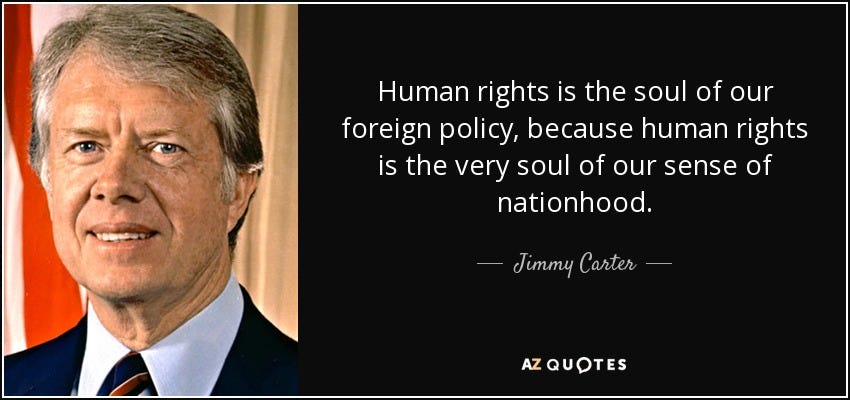On September 10, 2001, Secretary of State Colin Powell was in Lima, Peru, with plans to travel to Colombia the next day. As a researcher for Human Rights Watch with a focus on Colombia, I and my colleagues had been working hard to convince his team to include a strong human rights message to the Colombian military, deeply complicit in massacres, targetted killings, and torture in league with the country’s cocaine-rich paramilitaries.
And we’d succeeded. What better way to be heard than through the mouth of a highly decorated US Army officer who had also served as Chair of the Joint Chiefs of Staff?
That shift in US policy—embraced in different ways by both Republican and Democratic administrations—was a dramatic contrast to the way US policy was run under the influence of people like Henry Kissinger. Since news of his death was released this week, much has been written about him. One of his legacies was not only his refusal to incorporate human rights goals in US policy; it was also his willingness, even preference, for empowering autocrats and dictators and their murderous techniques to achieve US goals.
Secretary Powell’s arrival in Bogotá never took place. Early on September 11, Al Qaeda operatives hijacked four American airliners and used them as weapons against people in the World Trade Center towers and the Pentagon. The fourth plane may have been destined for the White House or Capitol but was taken down by the heroic passengers who sacrificed their lives to save others.
The attack was horrific. The impact went far beyond the families and cities harmed.
I felt it immediately. From a country that seemed to have learned an important lesson post-Kissinger about how human rights advances American goals, the change was dizzying. From a defender of human rights, America became a leading innovator in abuses, establishing public and clandestine detention and torture sites around the globe. Vengeance, not accountability, was the goal. Again and again, we’ve seen that barbarity does nothing to bring the perpetrators to justice. Instead, we harmed millions of innocents across the world.
We also sacrificed the lives and well-being of tens of thousands of military service members and their families. We are still dealing with the effects of ditching human rights for atrocity, exemplified by Kissinger.
I found this line from Kissinger’s New York Times obit particularly telling: His death was announced in a statement by his consulting firm. This reflects the persistent and often pernicious alliance between the US government, defense contractors, and lobbyists. The obit goes on: “Considered the most powerful secretary of state in the post-World War II era, he was by turns hailed as an ultrarealist who reshaped diplomacy to reflect American interests and denounced as having abandoned American values, particularly in the arena of human rights, if he thought it served the nation’s purposes.”
His legacy will be picked apart extensively, spurred, I think, by the administration that followed his. President Jimmy Carter did more than any modern president to embed human rights into American diplomacy. As we prepare to bid farewell to him, there could hardly be a more potent contrast.
Tellingly, there are too many examples of Kissinger’s disregard for human life to list. I’ll mention the ones I know best. Kissinger designed US support for Chile’s General Augusto Pinochet and the coup against the country’s democratically-elected government in 1973 (the National Security Archives has amazing resources in this derived from formerly secret government documents). As National Security Advisor to President Richard Nixon, Kissinger helped tank Chile’s economy, paving the way for the military to forcibly oust Salvador Allende, the elected president. This began an era of murder, “disappearance,” and torture that still reverberates.

In 2018, I visited Cambodia’s killing fields and walked through one (of dozens of) mass grave outside Phnom Penh. Between 1969 and 1970, the US dropped on Cambodia and Laos more bombs than America used against Germany and Japan in World War II. That campaign helped pave the way for the Khmer Rouge to violently seize power in 1975.

Kissinger’s goal was never democracy or the preservation of human life. He supported American power, pure and simple. The death toll is staggering: hundreds of thousands of needless deaths in East Timor, South America, East Pakistan, Cambodia, and on and on.
And that doesn’t even count the American lives shattered in terrible, pointless wars. As the Times obit notes, President Barack Obama was the most honest former president to summarize Kissinger’s legacy.
We dropped more ordnance on Cambodia and Laos than on Europe in World War II and yet, ultimately, Nixon withdrew, Kissinger went to Paris, and all we left behind was chaos, slaughter and authoritarian governments that finally, over time, have emerged from that hell… (the US government is still trying to help countries) “remove bombs that are still blowing off the legs of little kids…In what way did that strategy promote our interests?
I would argue that we are still living with Kissinger’s legacy in important ways. On September 11, 2001, the United States not only suffered a horrible attack; the response, imbued with rage and a thirst for vengeance, obliterated years of progress on human rights. Even now—after a dismal four years of Trump and his glee in promoting torture, executions, and murderers like the Philippines’ Rodrigo Duterte—we still struggle with how to align democratic and human rights values with our foreign policy.
Look no further than US policy on Israel and its just resumed attacks on Gaza. The US is supporting a military operation that has killed civilians at a staggering pace. Once again, vengeance, not defense or even the elimination of Hamas, may be the real goal. So far, the American response has been, at best, anemic and, at worst, enabling. As former Obama adviser Ben Rhodes points out, “to much of the world .. we are selective in our embrace of international laws and norms,” a very Kissinger-esque position.
Christopher Hitchens sums Kissinger’s legacy up succinctly and honestly.
BUY BOOKS
Books make wonderful presents! I’m including one of my favorite fantasies from my 2023 reading list.
If you have someone on your list who loves fantasy, I can recommend RF Kuang’s Babel. My Goodreads review started, “Wow, what an achievement. A truly fresh story with lots of undercurrents, so smartly written without being too pedantic. I think the only other book that comes close in terms of great story+deep thoughtfulness is Philip Pullman's “His Dark Materials” series.”
This is definitely an adult book. The themes include colonialism and revolution all in the context of an alternative Oxford that trains translators who serve the goals of the still-expanding British empire. It’s an immersive, thrilling read that really drew me in and only speeds up toward the conclusion.
Thanks for reading — please leave a comment and share!






